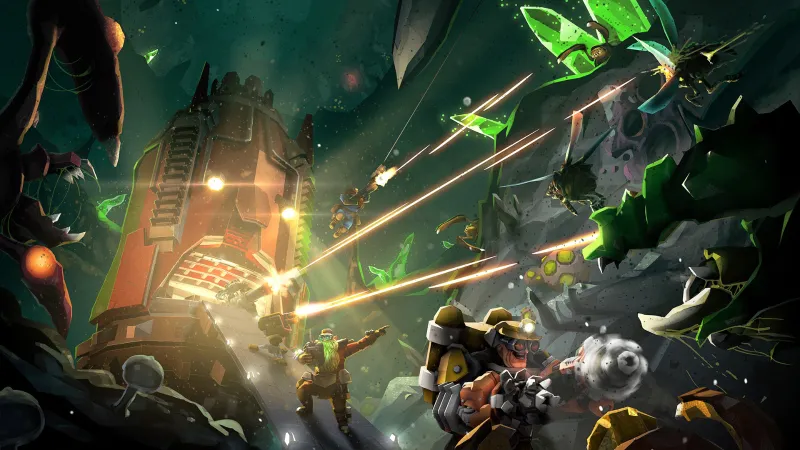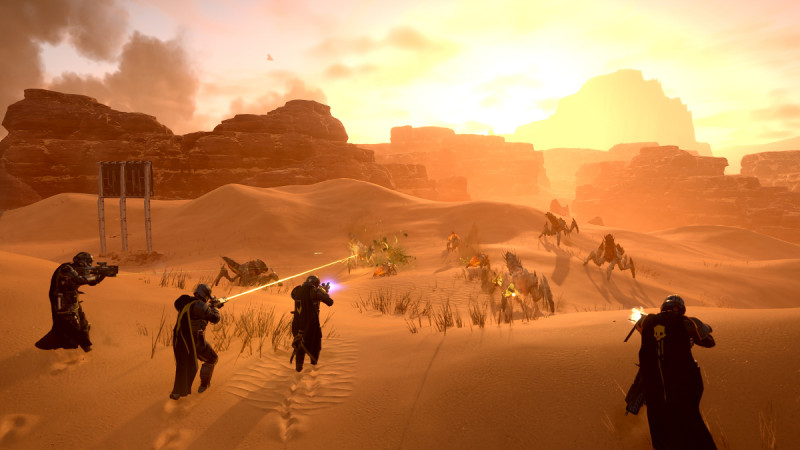
The culture around social interaction is constantly shifting, but those profoundly strange years of the pandemic were especially jarring. In the wake of such a weird cultural moment, I’m certainly not the only one left wondering how the dust settles, especially as it relates to how we meet up, build friendships and relationships, and socialize. If you’re a gamer, answering those questions requires an additional layer of complexity since we spend much of our free time in virtual worlds. I’ve found myself wondering where our favorite hobby fits into the equation.
For some years, the “third place” gave a name to a thing that’s been part of our lives forever. If home is your first place, and work is your second, the third place is the other social and gathering hub for your life as part of a community. But especially in the wake of COVID, it seems clear that many people have adjusted their relationship to social clubs, churches, coffee shops, bars, and public meet-ups. As many individuals disconnected from some of those social spaces, there’s a void we haven’t all yet filled.
Into that void have come the virtual places of our lives, whether they play out on social media or, as is likely if you’re reading this, in online games. Increasingly, games act as their own communities, often equaling or surpassing the thought and energy we put into other activities.
Indeed, much of that energy is the playing of those games – the countless hours of Call of Duty or Fortnite matches, raiding in Destiny 2 or World of Warcraft, or socializing and joking with friends in cooperative runs at Helldivers 2 or Deep Rock Galactic. We pour our attention into these games and are rewarded with relaxation, the excitement of discovery, and a growing sense of mastery.

Helldivers 2
It’s also the conversations and expertise that arise around those games. We comb through subreddits and community forums to discuss strategy. We read websites (like this one) and magazines to understand the games better. We build friendships that persist for years around shared adventures and discoveries in a virtual space, further fleshed out on platforms like Discord. In these places, even single-player games feel like social hubs for interaction and engagement as we seek out others who share our excitement for a given character or franchise.
Despite my love of games and the friendships I have formed as I’ve played them with others, I have to admit to some ambivalence. I treasure those late-night moments of triumph against a raid boss, but I miss more frequent in-person get-togethers with my buddies. I get excited about the many conversations about a game I like online, but I rarely feel like the connections I make there persist into real friendships.
None of that is to disparage the connections and enthusiasm we all find in our gaming. But there’s no doubt we can get too much of a good thing. Even with a nearly endless selection of games to enjoy, we’ve all come across sobering articles where we learn that many in the same demographic of core gamers feel lonely and isolated. That’s not a clear line of causation, but it does give reason to pause. If gaming is our new third place, is it meeting all the goals that older social gathering places once did? Should we really expect them to? That’s a heavy weight for someone’s hobby to have to bear.
I’d assert that the culture may have moved past the concept of a single third place. Whether it’s individual games, shared virtual social spaces, or traditional gathering places of the past, humans are animals that crave connection, and we make communities in the places we can. I don’t think we need to shy away from the interconnectedness that can arise from gaming, even while simultaneously seeking interaction elsewhere. At the same time, even while acknowledging my great love of games, I think they can be a trap that keeps us from forming other friendships and relationships. Like so many things in life, it’s finding a middle ground – embracing new routes to virtual connections without forgetting about the real-world options just outside our door.
This article originally appeared in Issue 366 of Game Informer



















You must be logged in to post a comment Login